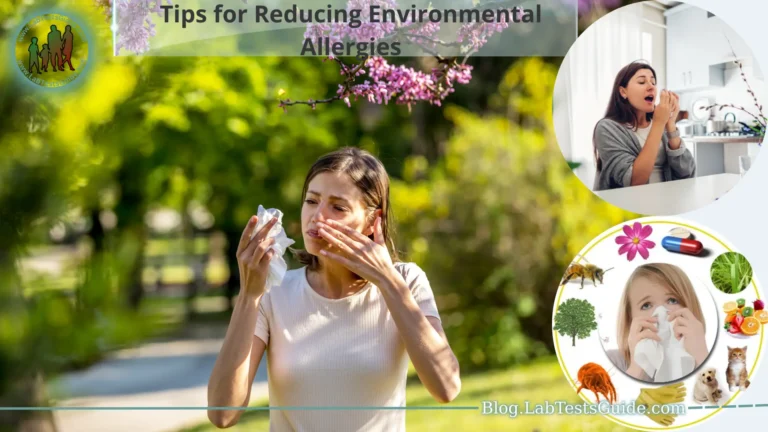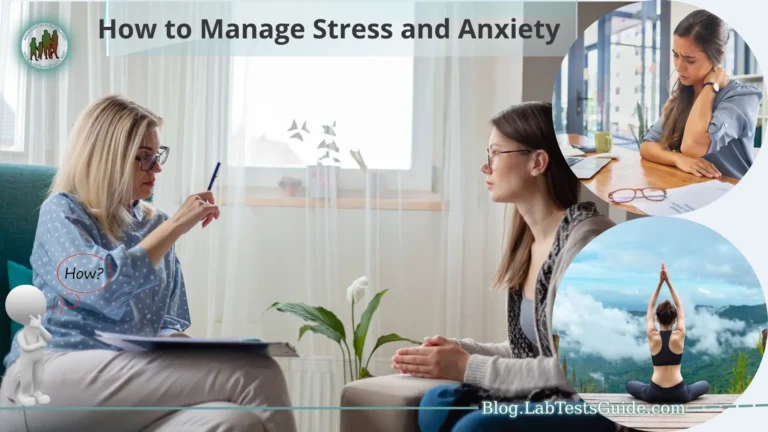Maintaining good lung health is essential for overall well-being and quality of life. The lungs play a vital role in our respiratory system, responsible for delivering oxygen to the bloodstream and expelling carbon dioxide from the body. When our lungs are healthy and functioning optimally, we can breathe easily, stay active, and participate in various daily activities without difficulty.

However, factors such as smoking, environmental pollutants, respiratory infections, and sedentary lifestyles can negatively impact lung health over time. This introductory guide aims to provide valuable insights into the significance of lung health, common lung issues that may arise, and practical tips and strategies to improve and maintain healthy lungs. Whether you want to protect your lung health proactively or address existing respiratory concerns, the information in this guide will empower you to make informed decisions and take steps towards a healthier respiratory system.
What Is Lung Health and Why Is It Important?
- Lung health refers to the overall well-being and proper functioning of the lungs, which are essential organs responsible for the exchange of oxygen and carbon dioxide in our bodies.
- Healthy lungs enable efficient breathing, ensuring an adequate supply of oxygen to all body tissues and the removal of waste carbon dioxide from the bloodstream.
- Proper lung function is crucial for maintaining physical activity, stamina, and overall fitness, as well as supporting other body systems.
- Lung health plays a significant role in preventing respiratory illnesses and complications, such as pneumonia, bronchitis, and chronic obstructive pulmonary disease (COPD).
- The importance of lung health extends beyond physical well-being, as it directly impacts mental health and quality of life, allowing individuals to engage in daily activities without breathlessness or fatigue.
- Lung health is particularly vital for certain groups, such as children, the elderly, pregnant women, and individuals with pre-existing respiratory conditions, as they may be more susceptible to respiratory issues.
- Poor lung health, often caused by factors like smoking, air pollution, occupational hazards, and sedentary lifestyles, can lead to reduced lung capacity, decreased respiratory efficiency, and increased vulnerability to respiratory infections.
- By prioritizing and maintaining lung health through healthy lifestyle choices, regular exercise, and avoidance of harmful substances, individuals can enhance their overall well-being and reduce the risk of lung-related diseases.
How to Assess and Improve Your Lung Health:
Assessment:
- Consult with a Healthcare Professional: Schedule an appointment with a healthcare provider to assess your lung health. They can conduct lung function tests, such as spirometry, to measure how well your lungs are working and identify any potential issues.
- Monitor Your Breathing: Pay attention to your breathing patterns during physical activities and at rest. Shortness of breath, persistent coughing, or wheezing may indicate underlying lung problems that need evaluation.
- Check Your Environment: Evaluate your living and working spaces for potential lung irritants, such as smoke, mold, dust, and chemical fumes, as these can negatively affect lung health.
- Review Medical History: Provide your healthcare provider with your medical history, including any past respiratory conditions or exposure to lung irritants.
Improvement:
- Quit Smoking: If you smoke, quitting is the most significant step you can take to improve lung health. Seek support from healthcare professionals, counseling, or quit-smoking programs to increase your chances of success.
- Engage in Regular Exercise: Regular physical activity helps strengthen respiratory muscles and improves lung capacity. Incorporate aerobic exercises, like walking, swimming, or cycling, into your routine.
- Practice Breathing Exercises: Learn and practice deep breathing techniques to enhance lung function and increase oxygen uptake. Pursed-lip breathing and diaphragmatic breathing can also be beneficial.
- Maintain a Healthy Diet: Consume a balanced diet rich in fruits, vegetables, whole grains, and lean proteins. Certain nutrients, like antioxidants and omega-3 fatty acids, can support lung health.
- Improve Indoor Air Quality: Keep your living spaces well-ventilated and use air purifiers to reduce indoor air pollutants, which can have adverse effects on the lungs.
- Protect Yourself from Respiratory Infections: Stay up-to-date with vaccinations, practice good hygiene, and avoid close contact with individuals who have respiratory illnesses.
- Avoid Exposure to Harmful Substances: Minimize exposure to outdoor air pollution, workplace hazards, and secondhand smoke, as they can negatively impact lung health.
- Get Regular Check-ups: Schedule periodic check-ups with your healthcare provider to monitor your lung health and address any concerns promptly.
Understand Your Lung Health:
- Recognize Normal Breathing Patterns: Familiarize yourself with what is considered normal breathing for your age and level of physical activity. Any deviations from the norm, such as shortness of breath or persistent coughing, should be taken seriously and evaluated by a healthcare professional.
- Know Your Risk Factors: Be aware of factors that can affect lung health, such as smoking, exposure to secondhand smoke, occupational hazards (like asbestos or chemicals), air pollution, and a family history of respiratory conditions.
- Pay Attention to Symptoms: Monitor any respiratory symptoms you experience, such as coughing, wheezing, chest pain, or increased mucus production. Keeping a symptom diary can help you track changes and patterns.
- Understand Lung Function Tests: If your healthcare provider recommends lung function tests, such as spirometry, understand the purpose and process. These tests can provide valuable information about your lung capacity and overall respiratory health.
- Seek Professional Evaluation: If you experience persistent or concerning respiratory symptoms, do not hesitate to consult a healthcare professional. Early detection and proper management of lung conditions can significantly impact long-term lung health.
- Listen to Your Body: Pay attention to your body’s signals during physical activities or exercises. If you find yourself becoming excessively breathless or fatigued, it may indicate underlying lung issues.
- Stay Informed: Educate yourself about common lung conditions and how they can affect your health. Understanding the potential risks can motivate you to make positive lifestyle changes.
- Be Proactive: Take charge of your lung health by adopting a proactive approach to preventive measures. Avoid exposure to lung irritants and pollutants whenever possible, and take steps to promote healthy lung function through lifestyle choices.
- Regular Health Check-ups: Schedule routine check-ups with your healthcare provider to discuss your lung health, review any potential risk factors, and address any concerns you may have.
- Advocate for Your Health: Be an active participant in your healthcare decisions. If you have questions or concerns about your lung health, don’t hesitate to ask your healthcare provider for clarification and guidance.
Lifestyle Changes for Better Lung Health:
- Quit Smoking and Avoid Secondhand Smoke: If you smoke, quitting is the single most important step you can take to improve lung health. Additionally, avoid exposure to secondhand smoke, as it can be equally harmful to your respiratory system.
- Maintain a Healthy Diet: Eat a balanced diet rich in fruits, vegetables, whole grains, and lean proteins. Nutrients like antioxidants and vitamins can support lung health and reduce the risk of respiratory issues.
- Stay Physically Active: Engage in regular physical activity to strengthen your respiratory muscles and improve lung capacity. Cardiovascular exercises like walking, jogging, or swimming are particularly beneficial.
- Avoid Environmental Pollutants: Minimize exposure to outdoor air pollution, chemical fumes, and industrial toxins. On days with poor air quality, try to stay indoors or wear a mask when necessary.
- Practice Good Hygiene: Wash your hands frequently to reduce the risk of respiratory infections, especially during cold and flu seasons.
- Improve Indoor Air Quality: Keep your living spaces well-ventilated and use air purifiers to reduce indoor air pollutants like dust, mold, and pet dander.
- Limit Allergen Exposure: If you have allergies, take steps to minimize exposure to allergens that can trigger respiratory symptoms.
- Stay Hydrated: Drink plenty of water to keep your airways moist and help your lungs function optimally.
- Manage Stress: Chronic stress can impact lung health, so practice stress-reduction techniques such as meditation, yoga, or spending time in nature.
- Avoid Harmful Substances: Steer clear of substances like recreational drugs or excessive alcohol, as they can be detrimental to lung health.
- Get Adequate Sleep: Ensure you get enough restful sleep each night, as sleep is crucial for lung function and overall well-being.
- Maintain a Healthy Weight: If you are overweight or obese, work towards achieving a healthy weight through a balanced diet and regular exercise, as excess weight can strain the respiratory system.
- Vaccinations: Stay up-to-date with vaccinations, including the flu vaccine and other relevant immunizations, to protect yourself from preventable respiratory infections.
- Follow Medical Advice: If you have a pre-existing respiratory condition, such as asthma or COPD, follow your healthcare provider’s guidance on managing the condition and taking prescribed medications.
Breathing Exercises and Techniques:
Deep Breathing Exercises:
- Sit or lie down comfortably with your hands on your abdomen.
- Inhale deeply through your nose, expanding your diaphragm and feeling your abdomen rise.
- Exhale slowly and completely through your mouth, feeling your abdomen fall.
- Focus on slow, controlled breathing, gradually increasing the duration of inhalation and exhalation.
Pursed-Lip Breathing:
- Inhale slowly through your nose.
- Purse your lips (as if blowing out a candle) and exhale slowly and steadily through your mouth.
- Pursed-lip breathing helps keep your airways open and can be particularly beneficial during activities that cause breathlessness.
Diaphragmatic Breathing:
- Lie down or sit in a comfortable position with one hand on your chest and the other on your abdomen.
- Inhale deeply through your nose, allowing your abdomen to rise while keeping your chest relatively still.
- Exhale slowly and completely through your mouth, feeling your abdomen fall.
- Diaphragmatic breathing promotes efficient use of your diaphragm and can improve lung capacity.
Controlled Coughing:
- Sit up straight and take a deep breath.
- Hold your breath for a moment, then cough firmly, but not forcefully, to clear mucus or irritants from your airways.
- Follow the cough with a deep breath to fully re-expand your lungs.
Segmental Breathing:
- This exercise helps improve lung expansion and flexibility in different areas of the lungs.
- Place your hands on the sides of your chest and inhale deeply.
- As you inhale, focus on expanding one side of your chest while keeping the other side relatively still.
- Exhale slowly and repeat on the other side.
Breath Counting:
- Sit or lie down comfortably and close your eyes.
- Inhale deeply through your nose for a count of four.
- Hold your breath for a count of four.
- Exhale slowly and completely through your mouth for a count of six.
- Repeat the cycle several times, gradually increasing the breath count if comfortable.
Indoor Air Quality:
Here are some important aspects of indoor air quality and tips for improving it.
Importance of Clean Indoor Air:
- Breathing clean air is crucial for overall health, as poor IAQ can cause or worsen respiratory problems, allergies, and other health issues.
- Indoor air can be more polluted than outdoor air, and people may be exposed to pollutants for extended periods indoors.
Sources of Indoor Air Pollution:
- Common sources of indoor air pollutants include tobacco smoke, cooking fumes, pet dander, mold, dust mites, volatile organic compounds (VOCs) from cleaning products and paints, and indoor allergens.
- Building materials, furniture, and carpets may also release pollutants like formaldehyde and other chemicals.
Tips for Improving Indoor Air Quality:
- Ventilation: Proper ventilation is essential for exchanging indoor air with fresh outdoor air. Open windows and use exhaust fans in kitchens and bathrooms to improve air circulation.
- Air Purifiers: Consider using air purifiers with HEPA filters to remove airborne particles and allergens from the indoor environment.
- Reduce Smoking: Avoid smoking indoors, as it significantly degrades indoor air quality and poses health risks to both smokers and non-smokers.
- Control Humidity: Maintain indoor humidity levels between 30% to 50% to prevent mold growth. Use dehumidifiers if needed, especially in damp areas like basements.
- Clean Regularly: Regularly clean and vacuum to reduce dust and allergens. Use natural, non-toxic cleaning products to minimize the release of harmful chemicals into the air.
- Control Allergens: Take steps to control allergens like pet dander, pollen, and dust mites. Keep pets out of bedrooms and wash bedding frequently in hot water.
- Use Low VOC Products: Choose building materials, furniture, and household products labeled as low-VOC or VOC-free to reduce exposure to harmful chemicals.
- Test for Radon: Consider testing for radon, a naturally occurring radioactive gas that can seep into buildings from the ground. Radon exposure is a significant lung cancer risk.
Regular Exercise and Lung Health:
Here’s how exercise benefits lung health.
- Strengthening Respiratory Muscles: During physical activities like walking, running, or swimming, the muscles involved in breathing, such as the diaphragm and intercostal muscles, are exercised and become stronger. This leads to more effective and efficient breathing.
- Improved Lung Capacity: Regular exercise helps expand the lungs and increases lung capacity. This allows the lungs to take in more air during each breath, providing the body with sufficient oxygen.
- Enhanced Oxygen Circulation: Exercise stimulates increased blood flow and oxygen circulation in the body. This improved circulation ensures that oxygen reaches all body tissues, supporting overall health and vitality.
- Efficient Carbon Dioxide Removal: Exercise helps the lungs efficiently expel carbon dioxide, a waste product produced by the body. This helps maintain the body’s acid-base balance and prevents the buildup of carbon dioxide in the blood.
- Cardiovascular Health: Aerobic exercises like jogging, cycling, and dancing improve cardiovascular fitness. A healthy cardiovascular system contributes to better lung function and overall respiratory health.
- Weight Management: Regular physical activity helps control body weight, preventing obesity, which can put extra strain on the respiratory system and affect lung function.
- Reduced Risk of Respiratory Conditions: Studies have shown that regular exercise can reduce the risk of developing respiratory conditions such as asthma and chronic obstructive pulmonary disease (COPD).
- Improved Breathing Efficiency: Through exercise, individuals become more conscious of their breathing patterns and may learn to use their respiratory muscles more efficiently, reducing breathlessness during physical exertion.
- Better Immune Function: Regular exercise boosts the immune system, making the body more resilient to respiratory infections and illnesses.
- Enhanced Quality of Life: Improved lung health resulting from regular exercise allows individuals to engage in daily activities with greater ease and enjoyment, leading to an overall enhanced quality of life.
Protecting Your Lungs from Infections:
Here are some strategies to protect your lungs from infections.
- Vaccinations: Stay up-to-date with recommended vaccinations, especially those targeting respiratory infections. The annual flu vaccine is crucial for protecting against seasonal influenza, which can lead to severe respiratory complications.
- Hand Hygiene: Wash your hands frequently with soap and water for at least 20 seconds, especially after being in public places or touching common surfaces. If soap and water are not available, use hand sanitizer with at least 60% alcohol.
- Respiratory Hygiene: Practice good respiratory etiquette by covering your mouth and nose with a tissue or your elbow when coughing or sneezing. Dispose of used tissues properly and wash your hands afterward.
- Avoid Close Contact: Stay away from individuals who are sick, and if you are unwell, try to avoid close contact with others to prevent the spread of infections.
- Wear Masks: During outbreaks or when you’re in crowded places, wearing a mask can help reduce the transmission of respiratory infections, especially if you or others around you are showing symptoms.
- Maintain a Healthy Lifestyle: Eating a balanced diet, getting regular exercise, staying hydrated, and managing stress can all contribute to a stronger immune system, making you more resilient to infections.
- Avoid Smoking and Secondhand Smoke: Smoking weakens the lungs’ defense mechanisms, making them more susceptible to infections. Avoid smoking and stay away from secondhand smoke, as it can be equally harmful.
- Clean and Disinfect: Regularly clean and disinfect frequently-touched surfaces in your home and workplace, such as doorknobs, light switches, and electronics.
- Properly Ventilate Indoor Spaces: Ensure proper ventilation in enclosed spaces to reduce the concentration of infectious particles in the air.
- Boost Immune Health: Consider taking steps to boost your immune system, such as getting enough sleep, consuming immune-boosting foods, and taking vitamin supplements if necessary.
- Stay Informed: Keep yourself updated on the latest information about respiratory infections and follow guidelines provided by healthcare authorities during outbreaks.
Avoiding Harmful Substances and Hazards:
Here are some steps to help you avoid respiratory risks.
- Quit Smoking and Avoid Secondhand Smoke: If you smoke, quit as soon as possible to reduce your risk of lung diseases, such as lung cancer, COPD, and emphysema. Avoid exposure to secondhand smoke, as it can be equally harmful.
- Avoid Exposure to Outdoor Air Pollution: Limit outdoor activities during times of high air pollution, especially on days when air quality is poor. Use air quality index (AQI) forecasts to plan your outdoor activities.
- Wear Masks in Polluted or Hazardous Environments: If you live in or visit areas with high levels of air pollution or respiratory hazards, wear a mask designed to filter out harmful particles.
- Protect Against Occupational Lung Hazards: If your job involves exposure to hazardous substances, follow safety protocols and use personal protective equipment (PPE) to minimize inhalation risks.
- Maintain Proper Ventilation: Ensure that your home and workplace are well-ventilated to reduce the buildup of indoor air pollutants.
- Radon Testing: Test your home for radon, a radioactive gas that can seep into buildings from the ground. Radon exposure is a significant lung cancer risk.
- Avoid Household and Environmental Hazards: Be cautious when using household cleaning products, paints, and pesticides. Choose low-VOC or VOC-free products to minimize exposure to harmful chemicals.
- Be Careful with Asbestos: Avoid disturbing materials containing asbestos, as inhaling asbestos fibers can lead to serious lung conditions such as mesothelioma and asbestosis.
- Protect Against Respiratory Infections: Follow good hygiene practices to reduce the risk of respiratory infections. Wash your hands frequently, avoid close contact with sick individuals, and practice respiratory etiquette.
- Monitor Indoor Air Quality: Use air purifiers and regularly clean and vacuum your home to reduce indoor air pollutants and allergens.
- Be Mindful of Allergens: If you have allergies, take steps to reduce exposure to allergens that can trigger respiratory symptoms.
- Check for Mold: Regularly inspect your home for signs of mold growth, especially in damp areas like basements and bathrooms. Address any mold issues promptly to prevent respiratory problems.
Regular Health Check-ups and Screening:
Here’s why regular health check-ups and screenings are important.
- Early Detection of Respiratory Conditions: Regular check-ups and screenings can detect respiratory conditions like asthma, chronic obstructive pulmonary disease (COPD), and lung cancer in their early stages. Early detection allows for prompt treatment and better outcomes.
- Lung Function Assessment: Health check-ups may include lung function tests like spirometry, which measure how well your lungs are working. These tests can identify lung problems even before noticeable symptoms appear.
- Monitoring Respiratory Health: For individuals with pre-existing respiratory conditions, regular check-ups help monitor lung function, disease progression, and treatment effectiveness. This ensures that the condition is managed optimally.
- Smoking Cessation Support: If you are a smoker, health check-ups offer an opportunity to discuss smoking cessation strategies and receive support to quit, reducing your risk of respiratory diseases.
- Prevention and Health Promotion: Health check-ups and screenings can assess your overall health status and identify risk factors for respiratory issues. This enables healthcare providers to provide personalized advice on preventive measures and lifestyle changes to promote lung health.
- Age-Related Screening: As you age, certain respiratory conditions become more prevalent. Regular check-ups may include age-appropriate screenings to detect conditions like lung cancer or pneumonia.
- Coordinated Care: Regular health check-ups foster a strong patient-doctor relationship, allowing healthcare providers to understand your specific health needs and coordinate care effectively.
- Wellness and Prevention Programs: Some health check-ups may include participation in wellness and prevention programs tailored to lung health and respiratory well-being.
- Mental Health Evaluation: Respiratory conditions can sometimes be linked to mental health issues. Regular check-ups may include mental health assessments to identify any potential connections.
- Health Education: During check-ups, healthcare providers can offer valuable health education on lung health, respiratory hygiene, and self-care practices to help you maintain optimal lung function.
FAQs:
What are common respiratory conditions that can affect lung health?
Common respiratory conditions that can affect lung health include asthma, chronic obstructive pulmonary disease (COPD), pneumonia, bronchitis, and lung cancer.
How can I improve my lung health if I have asthma?
If you have asthma, work closely with your healthcare provider to develop an asthma management plan. This may involve using inhalers or medications as prescribed, identifying triggers, avoiding allergens or irritants, and following a personalized exercise routine.
Is there a link between smoking and lung cancer?
Yes, smoking is the leading cause of lung cancer. Smoking exposes the lungs to harmful carcinogens, which can lead to the development of cancerous cells over time.
How often should I get my lung function tested?
The frequency of lung function tests, like spirometry, may vary based on your age, medical history, and risk factors. Consult your healthcare provider to determine the appropriate testing schedule for you.
Can indoor air pollution impact lung health?
Yes, indoor air pollution can have a significant impact on lung health. Poor indoor air quality due to pollutants, mold, or allergens can lead to respiratory issues and worsen existing lung conditions.
What are the early warning signs of respiratory problems?
Early warning signs of respiratory problems may include persistent coughing, wheezing, shortness of breath, chest tightness, and increased mucus production.
Can regular exercise help improve lung health in individuals with COPD?
Yes, regular exercise can be beneficial for individuals with COPD. Engaging in appropriate physical activity can strengthen respiratory muscles, improve lung capacity, and enhance overall fitness and well-being.
Are there specific vaccinations that can protect my lung health?
Yes, certain vaccinations, such as the annual flu vaccine and pneumonia vaccine, can help protect your lung health by preventing or reducing the severity of respiratory infections.
Is it normal to experience shortness of breath during exercise?
Mild shortness of breath during exercise can be normal, especially when engaging in more intense activities. However, if you experience severe or persistent shortness of breath, it’s essential to consult your healthcare provider to rule out any underlying respiratory issues.
Conclusion:
In conclusion, prioritizing and maintaining good lung health is essential for overall well-being and quality of life. By adopting healthy lifestyle habits, such as quitting smoking, engaging in regular exercise, and improving indoor air quality, individuals can protect their lungs from harmful substances and hazards. Regular health check-ups and screenings aid in early detection and management of respiratory conditions, while vaccinations and preventive measures help reduce the risk of respiratory infections. Understanding the importance of lung health and taking proactive steps to promote it can lead to improved respiratory function, enhanced physical endurance, and a greater sense of vitality, ultimately contributing to a healthier and happier life. Remember, consulting with healthcare professionals for personalized advice and guidance is crucial in achieving optimal lung health.






